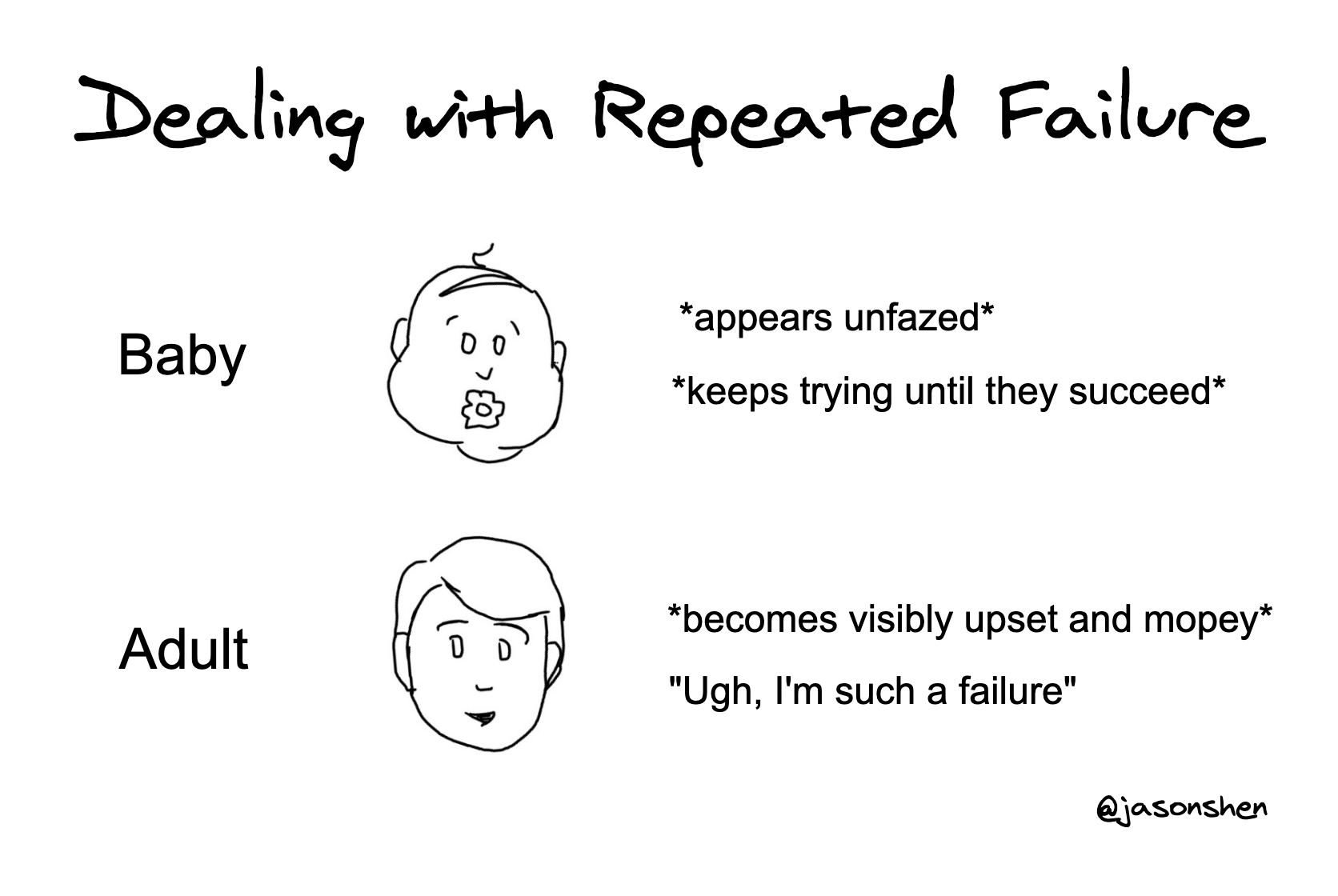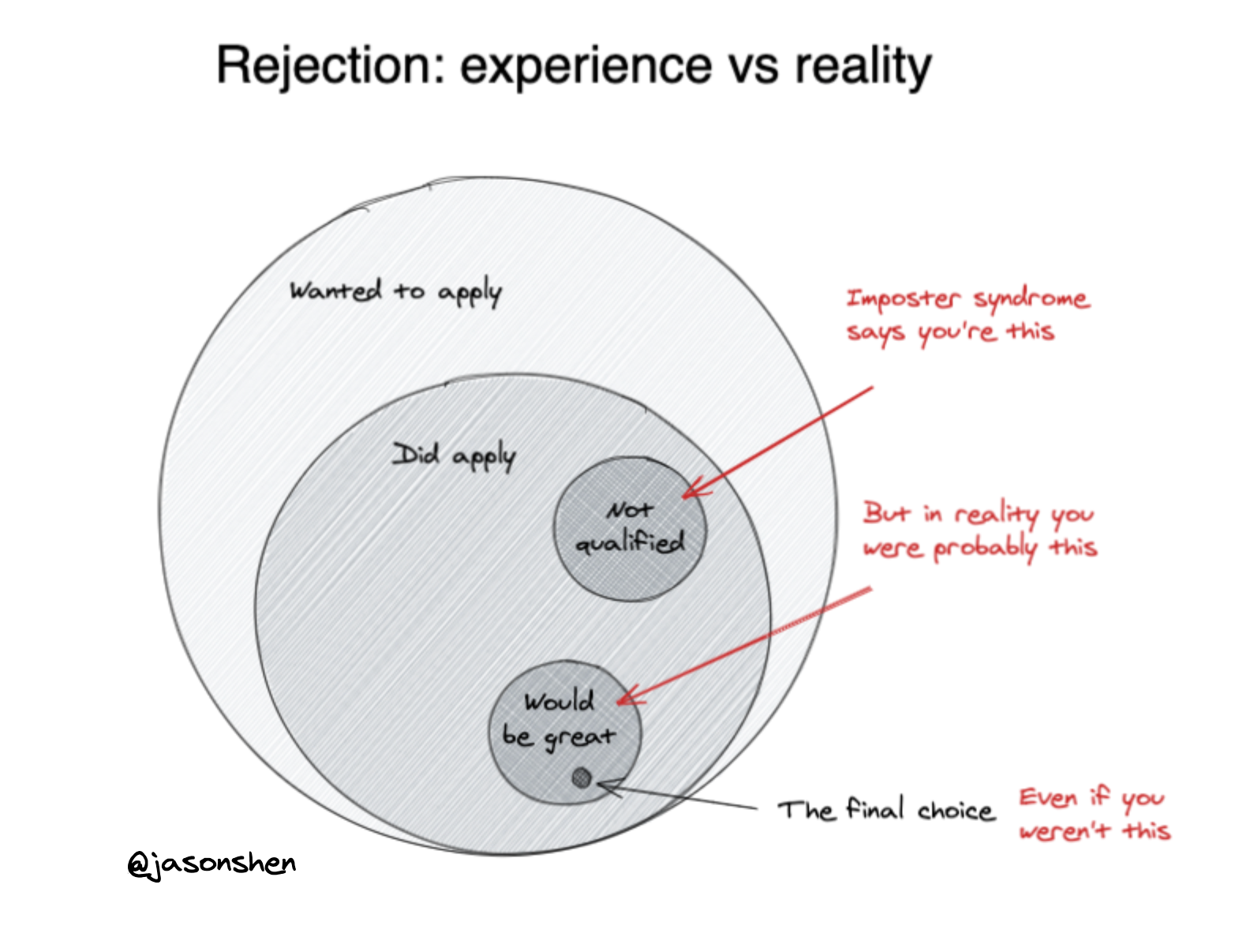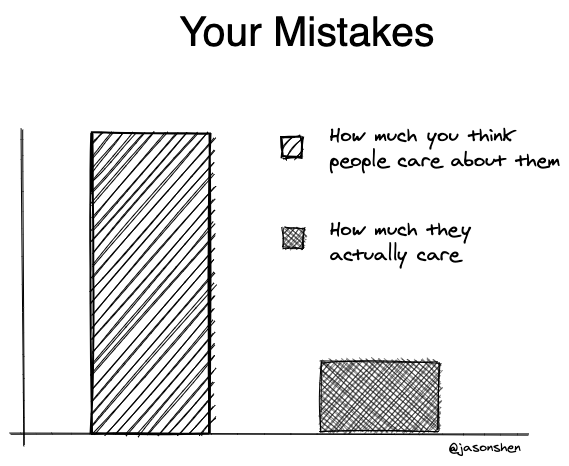👶Thinking Like a Baby + 🙅🏻♂️ How Rejection Works + 🙈 Making Mistakes
Hey friends,
This is the 7th edition of Making Connections, where we take a random walk down tech, fitness, product thinking, org design, nerd culture, persuasion, and behavior change.
We had a double header today, with a 2nd email around COVID-19 burnout. I’ll try to keep those rare. Onto the newsletter - and this time with illustrations!
1. 👶 Thinking Like a Baby

I recently tweeted this shower thought:
When you were a a baby, you didn’t get down yourself when you failed to do something on your first, second, or nth try. So why do it now?
Infants, children, even animals will try to do something or get something repeatedly, failing every time and trying again with enthusiasm. They might quit eventually, but they don’t seem to get worked up about it.
Adults on the other hand, sometimes get way into their own heads about what failure means about them and develop complexes. Frankly, I feel like the infant mentality is better.
What about you?
2. 🙅🏻♂️ Taking the Sting Out of Rejection
When I was a recent grad, I embarked on a weird adventure called Rejection Therapy where I tried to get personally rejected by someone every day for a month. The story even got a write up in the SF Chronicle.
I learned two things from that:
- People say "yes" more often than you expect, even when you're trying to get rejected
- People aren't really rejecting you, they simply don't see how your offer meets their needs
Rejection can feel personal and imposter syndrome can make us feel like a rejection means we did horribly. But the truth is, you were probably on a short list and just didn't get selected. Your offer wasn't the best possible match for the person/group you were applying to.
Y Combinator is one of the top startup accelerators in the world and when you get rejected, this is part of the email they send you, which generously acknowledges how flawed their own selection process is.
Another reason you shouldn't take this personally is that we know we make lots of mistakes. It's alarming how often the last group to make it over the threshold for interviews ends up being one that we fund. That means there are surely other good groups that fall just below the threshold and that we miss even interviewing.
I made an comic to illustrate this point:

3. 🙈 Making Mistakes is How You Learn
Speaking of mistakes—they're an integral part of getting better. A few years back, I interviewed Professor Anders Ericsson who did the pioneering work on expertise that led to Gladwell's "10,000 hour" rule.
Ericsson, who sadly passed away a few days ago, explained that deliberate practice is working at the edge of your comfort zone and purposeful, meaning you're trying to achieve a very specific outcome.
This means you're going to make mistakes. Which your brain notices and works to correct.
And it is quite so effective because the best way to build a fast and accurate neural circuit is – to quote Coyle – “to fire it, attend to mistakes, then fire it again, over and over”. Why? Because “struggle is not an option, it’s a biological requirement”. (link)
We often get worried about who’s watching us make mistakes and that often prevents us from pushing ourselves, really understanding what we did wrong, and working to correct ourselves, which only hurts us in the long run. One more comic here:

Welp, that just about wraps things up for this edition of Making Connections. Any reactions? How did you like the illustrations? Should I do more of them? Reply and let me know.
Illustratively yours,
Jason

